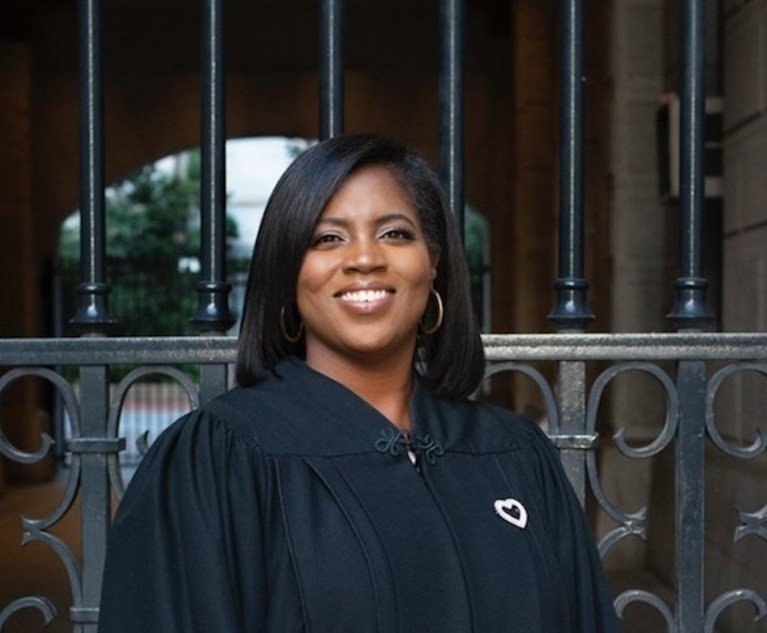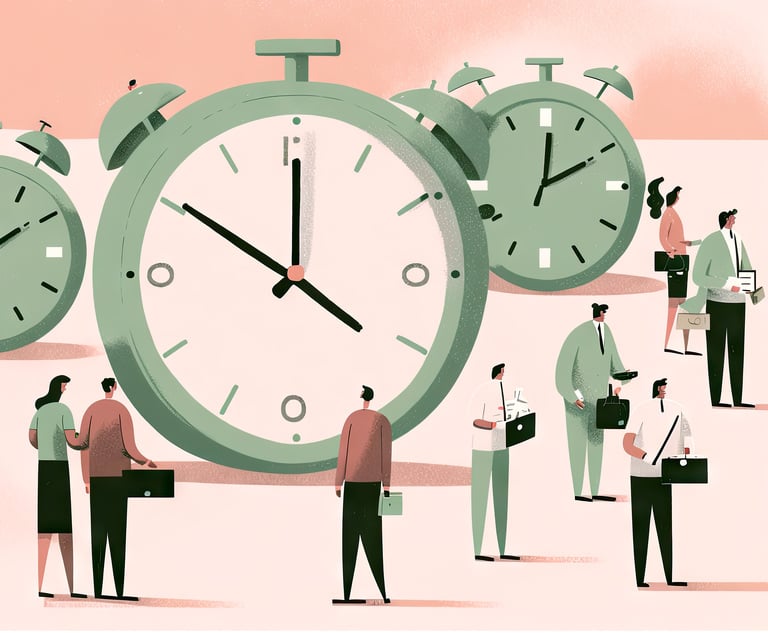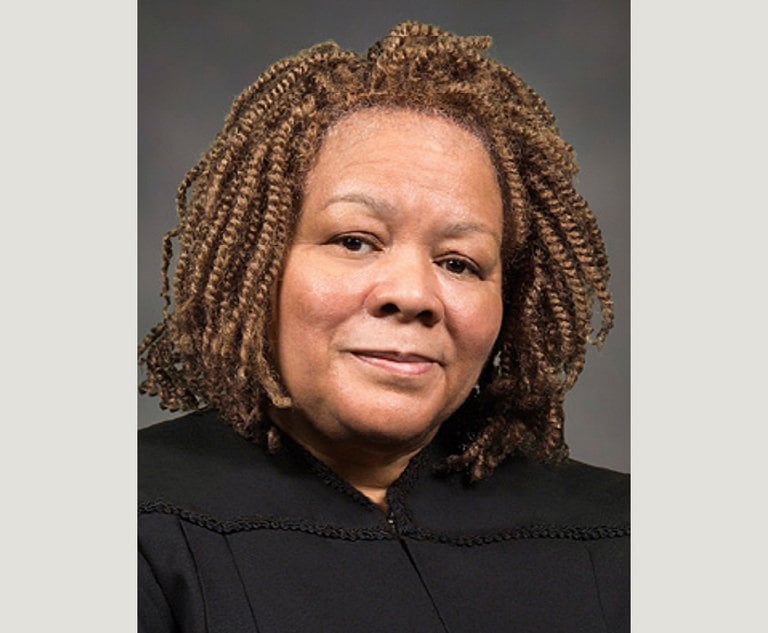Candidate: Timika Lane
Court: Superior Court
Party: Democrat
Pennsylvania Bar Association Rating: Highly Recommended
The following has been edited lightly for length and style.
The Legal Intelligencer: How would you describe your judicial philosophy?
Timika Lane: Throughout my career as a judge, my top priority has always been to provide a fair and balanced approach to the law that will continue if elected to the Superior Court of Pennsylvania. It is imperative that every person who appears before the court be treated with dignity and respect. Litigants are not just names on a pleading; they are members of our community and deserve judges who have the experience and the knowledge to properly apply the facts of their cases to the law of the land. In every matter that appears before the court, I strive to delve into the intricacies of each litigant’s position to reach a fair outcome that ensures the ends of justice are met.
The Legal: What makes you the best candidate for the role?
Lane: Those coming before the Superior Court deserve to have appeals heard before an experienced jurist, like me, committed to the fair application of the law, who sees the humanity in people, and who will never back down from doing the right thing. With a broad range of cases, including human trafficking, rape, domestic violence, child abuse, attempted murder, consumer protection, breach of contract, and civil matters, I have presided over matters that profoundly impact people’s lives. As a trial judge, I care deeply and know firsthand the responsibilities that come with this robe. The Superior Court is error-correcting, so we must have judges with extensive trial court experience as both an attorney and a judge. My judicial experience and lived experience make me uniquely qualified to serve on the Superior Court, and this is why I am the only judge whom the Pennsylvania Bar Association highly recommends in the race for the Superior Court.
The Legal: What is the greatest threat to the practice of law or problem the profession faces?
Lane: Our profession’s greatest threat is the erosion of confidence and trust in the judicial system, which is becoming more widespread among the residents we serve. The over-politicization of our courts’ cast doubts that our judicial system is justly applying the law rather than bending to the will of partisan interest. Over my decade of service as a judge on the Court of Common Pleas, I have demonstrated my ability to apply the law fairly in every case before my court. We can only rebuild this confidence and trust by electing experienced jurists with a proven track record of ensuring justice is served, and people’s needs are met.
The Legal: What does your party membership say about you and your legal outlook?
Lane: My judicial record, not my party, speaks volumes about me and my legal outlook. Throughout my career as a judge, I have made creating an unbiased environment for every litigant that came before my court a priority. As a judge on the Superior Court, which is often the last opportunity for our residents to appeal, I will continue to uphold the law without respect for my personal beliefs. This is, without question, the most solemn duty a judge has.
The Legal: Do you think courts in Pennsylvania have a perception problem when it comes to appearing partisan or polarized? If so, what would you do to combat this?
Lane: Members of the judiciary are constrained from conflating their personal biases and beliefs with their responsibility to the administration of justice. To maintain confidence among the members of our community, I will always strive to create a fair and balanced approach to the law.
The Legal: Several CLEs and bench-bar panels have recently addressed the growing phenomenon of distrust in the courts. In your view, how has distrust in the judiciary created challenges for the bench, and how should judges respond?
Lane: As judges, we must accept that not all parties will be happy with our decisions. The best we can do is to ensure that the parties receive the due process of law and are treated with fairness and dignity. When applied evenly and fairly, the law works, and litigants, more often than not, will accept the outcome.
The Legal: What factors matter in deciding when recusal is necessary, and would you recuse yourself if a campaign contributor were involved in litigation as a party or attorney before you?
Lane: The Pennsylvania rules of judicial conduct notes that “the Pennsylvania legal system is founded upon the principle that an independent, fair, impartial, and competent judiciary, composed of persons of integrity, will interpret and apply the law that governs our society.”
Consequently, it is incumbent upon members of the judiciary to never engage in activities that are likely to impugn the impartiality and integrity of the bench. Additionally, on the issue of disqualification, Rule 2.11 sets forth the requirements for a judicial recusal, and I pledge to continue to adhere to the criteria set forth therein.
The Legal: How important is consensus—particularly unanimous consensus—in appellate court opinions? Are there limits when a judge should only concur?
Lane: Each judge should endeavor to reach a consensus if it can be done so without harming the conscience and oath made to uphold the Constitution. Each judge should be free to concur in judicial opinions as required by their independent analysis of the specific facts and the law applied.
The Legal: What two decisions or cases are you most proud of, and why? Conversely, what two opinions or cases would you like to take back or revise if you could, and why?
Lane: Every case I preside over is significant to each litigant who appears before me. As a result, I take particular care with every decision I make. So, I cannot say that I take personal pride in the outcomes of any specific case, but just in the impact I try to make on the witnesses, victims, and defendants who enter my courtroom.
The Legal: Who are your role models and mentors?
Lane: My mother and my grandmother remain my greatest role models. My grandmother worked in the cafeteria of Rolling Hill Hospital in Montgomery County. She got up early every day and took public transportation from West Philadelphia to Elkins Park. My mother entered a male-dominated field as a Philadelphia Police officer and was able to excel and thrive, rising to the rank of detective. I never heard either woman complain about the hours they worked or the rigor of their positions. Each taught me the love of community, a strong work ethic, duty, and perseverance.
NOT FOR REPRINT
© 2024 ALM Global, LLC, All Rights Reserved. Request academic re-use from www.copyright.com. All other uses, submit a request to [email protected]. For more information visit Asset & Logo Licensing.


 Philadelphia Court of Common Pleas Judge Timika Lane.
Philadelphia Court of Common Pleas Judge Timika Lane.






